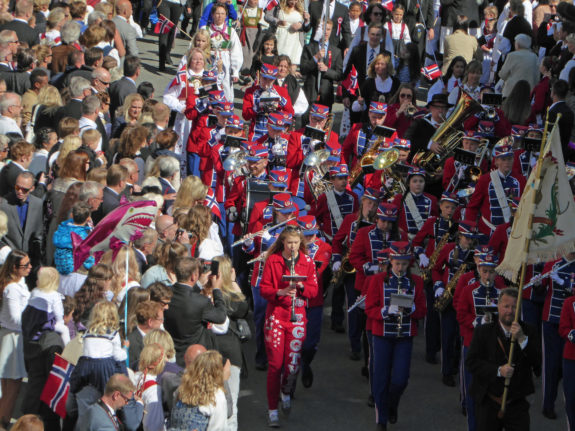Nationally, parades of up to 200 people are allowed provided social distancing is observed. Restrictions in the capital Oslo are somewhat tighter, with public assembly limited at 10 people.
Local rules should be checked before heading out to any event.
Although coronavirus restrictions have not been eased for May 17th, the deputy director of the Norwegian Directorate of Health Espen Nakstad encouraged the country to enjoy its national day.
“Be considerate to others, avoid crowds and have a nice time,” Nakstad told newspaper VG.
The senior health official also stressed the importance of ensuring visiting family members have no symptoms and are not currently required to isolate.
Up to five people can be invited to celebrate at private homes or gardens, with vaccinated people not counting towards that total.
A family of more than five (from the same household) may be invited if there is enough space to social distance.
“Unvaccinated guests not from the same household should keep a one-meter distance,” Nakstad told VG.
- Where events are allowed, gatherings should be avoided across municipal boundaries, and that all planned events should take place locally
- May 17th parades are covered by Covid-19 restrictions regarding events. If events are advised against or prohibited, then they shouldn’t take place
- If there is a risk that children’s parades, which are a big part of May 17th celebrations, will lead to a gathering of people, they should be cancelled.
- In areas where events are prohibited, marching bands will still be able to play for residents in announced pop-up performances
- Marching band practice ahead of May 17th must follow national and local advice.



 Please whitelist us to continue reading.
Please whitelist us to continue reading.
Member comments